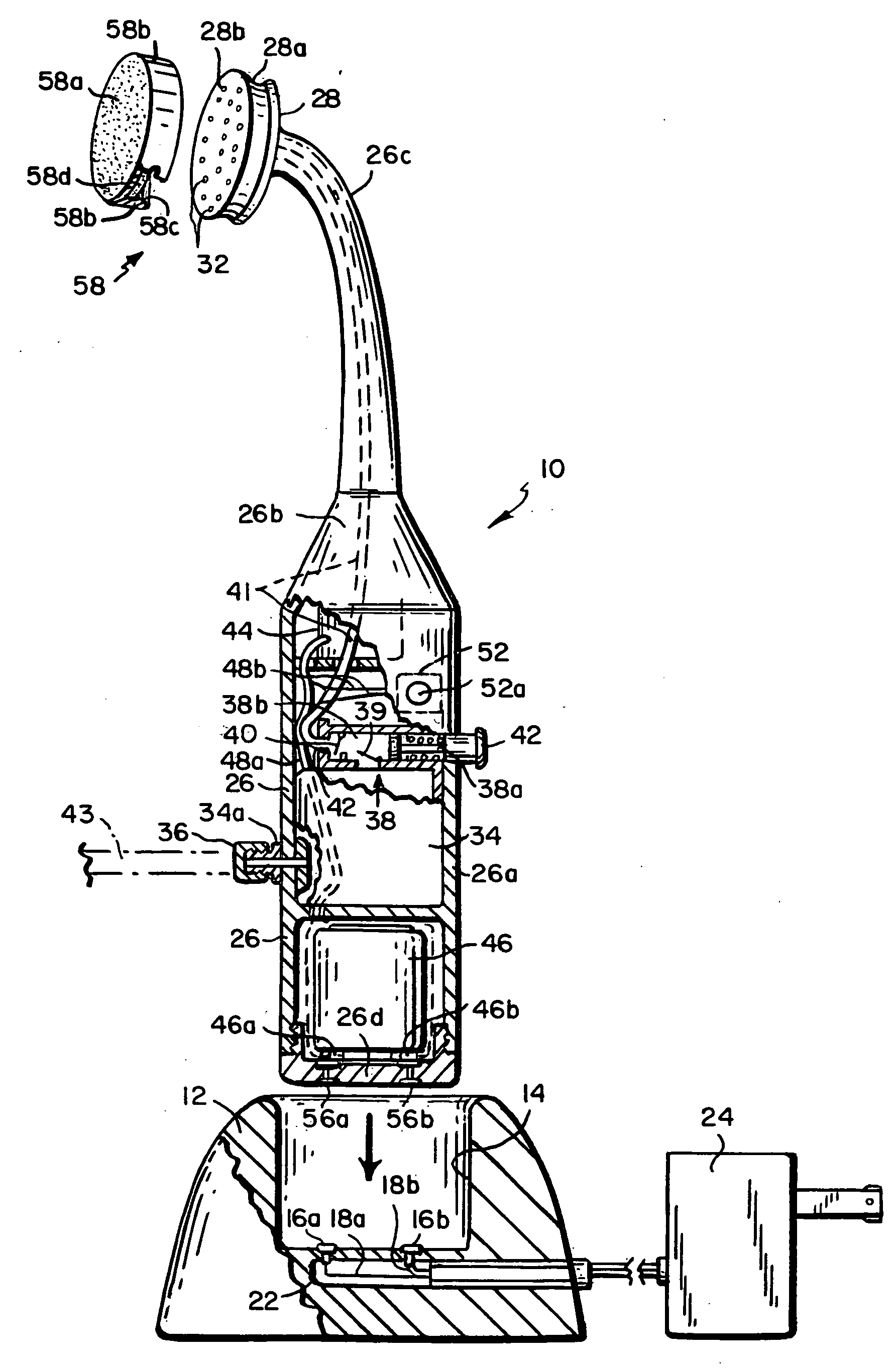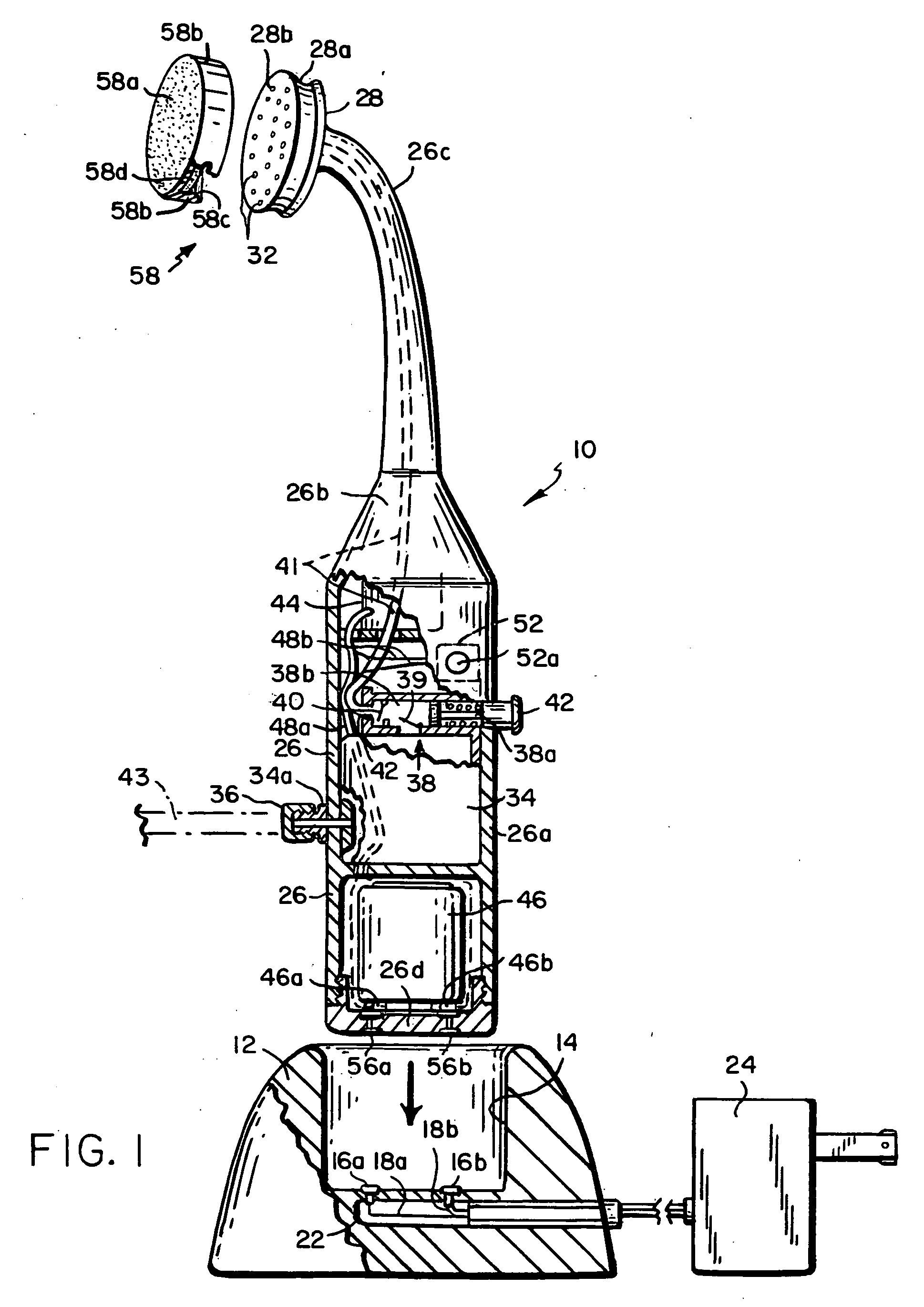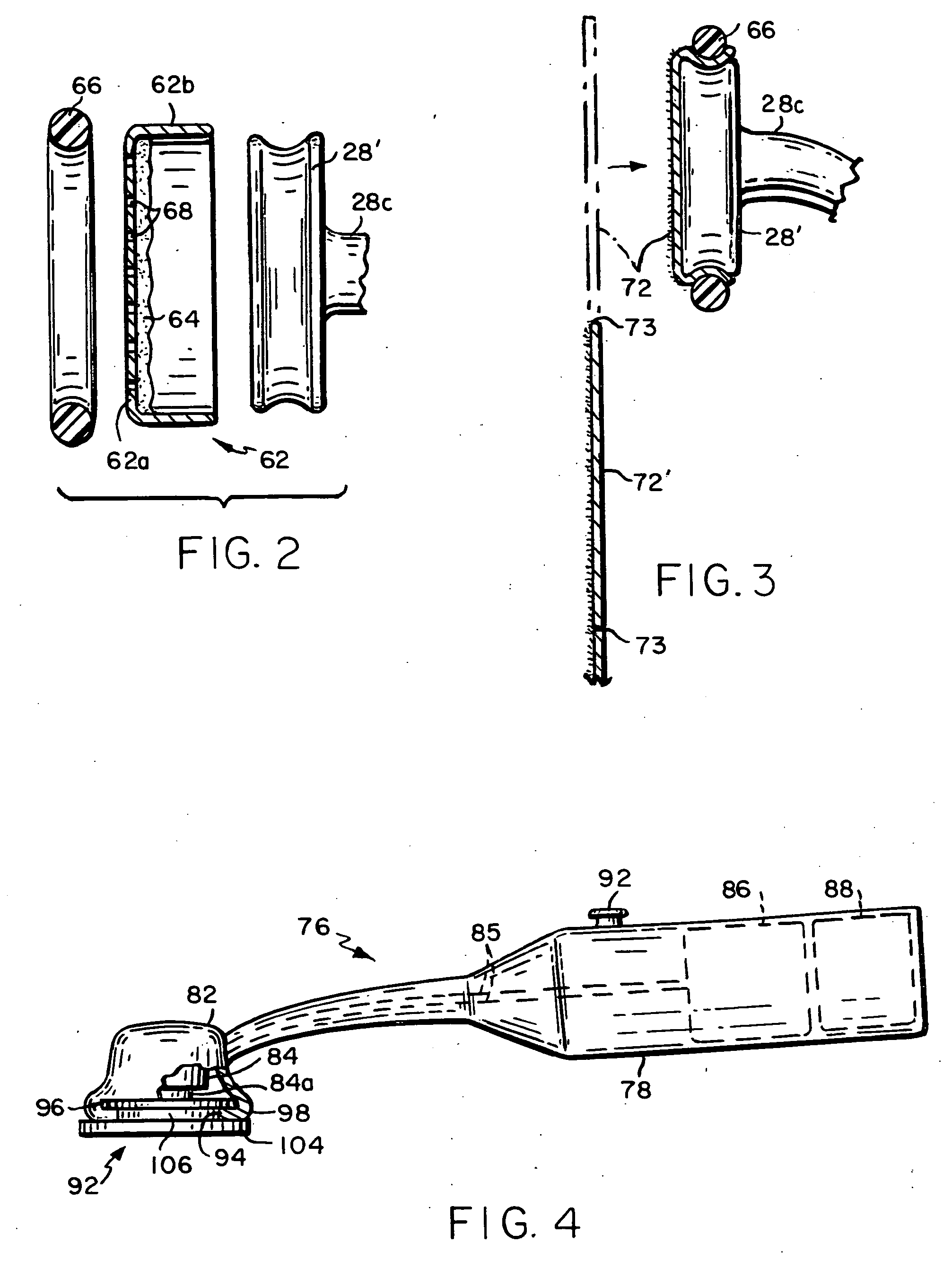Abrasive head attachment for nail polish removal tool
a nail polish and attachment head technology, applied in the field of grooming devices, can solve the problems of a good hour to completely clean a set of nails, a tedious task, and a large amount of nail polish removal, and achieve the effect of easy use, convenient use, and extended user's reach
- Summary
- Abstract
- Description
- Claims
- Application Information
AI Technical Summary
Benefits of technology
Problems solved by technology
Method used
Image
Examples
embodiment 120
[0044] Refer now to FIGS. 5 and 6 which show another tool embodiment 120 comprising a housing 122 having a main body 122a and a smaller diameter elongated neck 122b leading to a head 122c. Like the tool depicted in FIG. 4, the head 122c is caused to vibrate. However, instead of placing the transducer or vibrator in the head as in FIG. 4, a known transducer 124 is located in the housing body 122a and extends into neck 122b so that when activated, the transducer causes the neck 122b as well as head 122c to vibrate. The transducer 124 is powered by a rechargeable battery 126 in main body 122a which is connected to the transducer by way of a finger-activated switch 128 mounted in the wall of housing 122.
[0045] Also, unlike the tool 76 in FIG. 4, the tool 120 is able to deliver a solvent to the working surface 130 of head 122c as the head is vibrated. More particularly, both neck 122b and head 122c are hollow. A tube 132 leads from the interior of the neck by way of a finger-operated val...
embodiment 170
[0052] Refer now to FIG. 7 which illustrates a tool embodiment 170 whose head 172 has a working surface 174 which rotates instead of vibrates. Tool 170 has a main body 176a and a neck 176b leading to head 172. Body 176a contains an electric motor 178 as the prime mover powered by a rechargeable battery 179 and controlled by a switch 180 mounted in the wall of main body 176a and electrically connected between the two. The armature 178a of motor 178 is coupled to one end of a shaft 182 rotatably mounted in neck 176b. The opposite end of shaft 182 is located in head 172 and carries a bevel gear 184 which meshes with a second, orthogonal bevel gear 186 connected to a stub shaft 188 rotatably mounted in a bottom wall 172a of head 172. The stub shaft 188 extends through bottom wall 172a and connects to working surface 174 which is part of a relatively stiff, rotatable, perforated pad 175.
[0053] Tool 170 is used in conjunction with an abrasive member in the form of a swab shown generally a...
PUM
 Login to View More
Login to View More Abstract
Description
Claims
Application Information
 Login to View More
Login to View More - R&D
- Intellectual Property
- Life Sciences
- Materials
- Tech Scout
- Unparalleled Data Quality
- Higher Quality Content
- 60% Fewer Hallucinations
Browse by: Latest US Patents, China's latest patents, Technical Efficacy Thesaurus, Application Domain, Technology Topic, Popular Technical Reports.
© 2025 PatSnap. All rights reserved.Legal|Privacy policy|Modern Slavery Act Transparency Statement|Sitemap|About US| Contact US: help@patsnap.com



